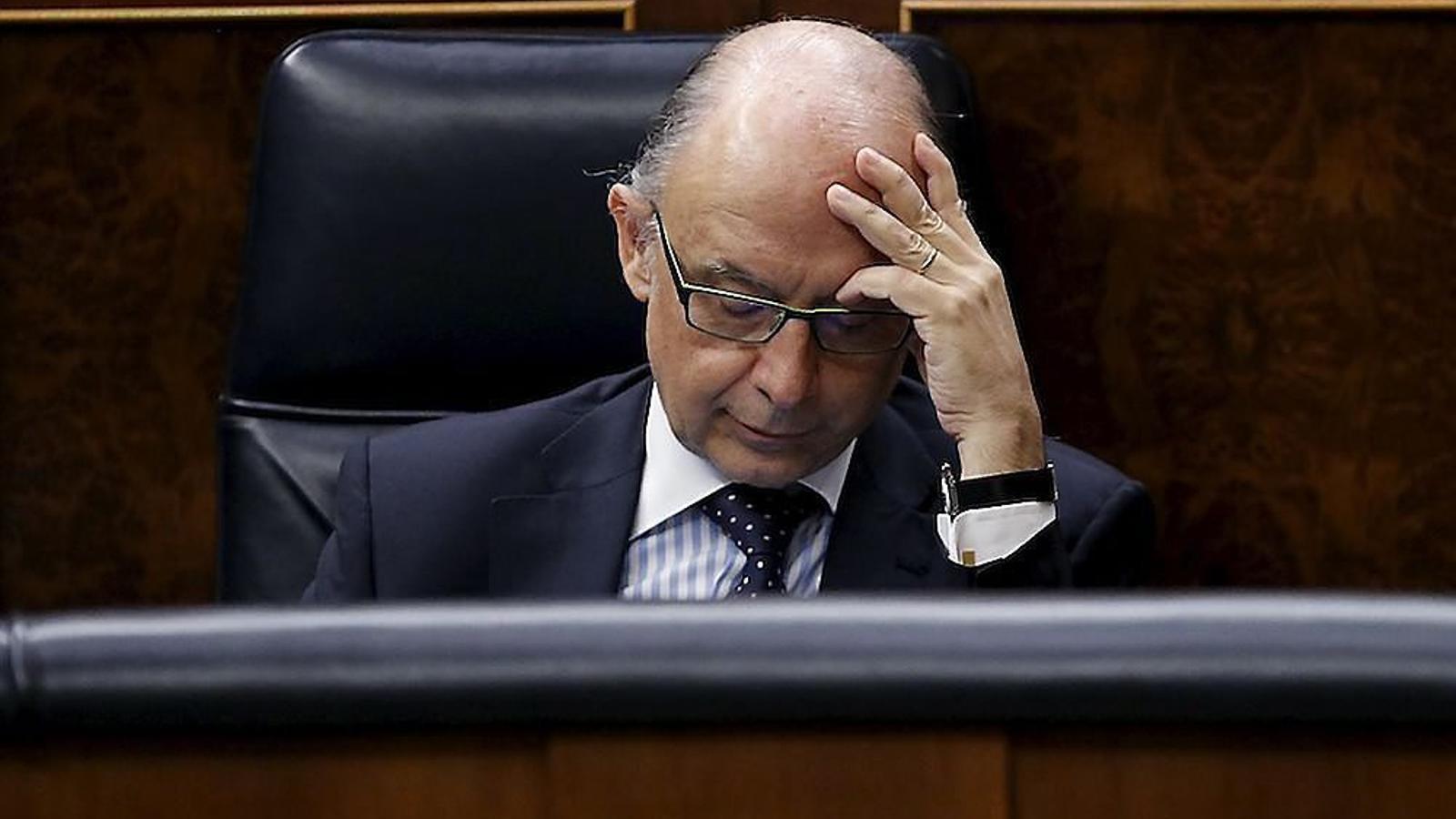Sánchez will reverse Montoro's tax reforms, which are under investigation.
The Spanish president says he feels "strong" and "calm" as he faces the second half of his term.

BarcelonaThe alleged corruption case of former Finance Minister Cristóbal Montoro has turned the political scene in Spain upside down. The Spanish government seized on this scandal to breathe, change the agenda, and shift the focus away from the Cerdán case to once again highlight the corruption of the People's Party (PP). In the midst of his tour of Latin America, Spanish President Pedro Sánchez has returned to the fray with a promise regarding the Montoro case: he wants to end the tax privileges that certain companies could have obtained as a result of the laws promoted by the former minister.
This is what he explained, according to government sources, in an informal conversation with journalists. The objective is to reverse the legislative reforms carried out by the former PP minister for, allegedly, favoring companies that hired the services of his office, Economic TeamSánchez explained that the executive intends to conduct a detailed analysis of the laws promoted by Montoro and, based on that, assess what actions need to be taken. Until now, the Ministry of Finance, led by María Jesús Montero, had stated that this issue would be "looked into." Sources within the ministry state that they are still unable to determine exactly which articles should be amended or whether they remain in force. In any case, the taxes targeted in the summary are the electricity tax, which has reportedly been reduced by 85% for some sectors, and the economic activities tax, which has reportedly been made more flexible.
This initiative has not left the PP indifferent, which has responded by attacking the state executive. During a visit to Barcelona, the secretary general of the Popular Party, Miguel Tellado, stated at a press conference this Thursday that this announced legislative review is a "smokescreen" aimed at "not talking about the corruption cases that plague and surround the Spanish government." Although he criticized the alleged Socialist strategy of discussing "anything" like the Montoro case to try to divert attention from the alleged corruption within his party, he did not rule out this specific proposal. "If they want to bring any law to Congress, let them bring it, we will study it and see what they propose in this legislation," he declared.
Aside from this issue, the Socialist leader also asserted that he feels "strong" and "calm" heading into the second half of the legislature. He even said that in the first term, the executive won 90% of the vote, in the second, 89%, and in the current one, 86%—statistics he says are very similar and, in his opinion, would support his management. This diagnosis is the opposite of that of the PP, which has once again pointed to the weakness of the investiture majority, as occurred with the failed anti-blackout decree this week (which brought down the PP and Vox, but also Junts and Podemos) or the lack of a state budget. Specifically, Tellado said that the week "could not have been more lethal" and has painted a picture of a government "more depressed than ever." Thus, he called for elections in the fall to end the political degeneration of Sánchez, whom he accused on Wednesday from Cornellà of leading a "criminal gang." "He is the threat to democracy," he went so far as to say again this Thursday from Barcelona, concluding that since he "does not respect democracy," he "will not call" elections.
Tour to Latin America
From Paraguay, Sánchez stated that it's not about "competing" with the PP in corruption cases, since the PP "wins by a landslide," but rather that what's needed is to combat the problem. These statements can be understood as a nod to his legislative partners, who, following the Cerdán case, have repeatedly urged him not to use the "you too" argument and instead focus on promoting measures against this issue.
The Spanish Prime Minister, halfway through his term, also sought to boast about his management during these first two years. He asserted that "the apocalypse" announced by the PP has yet to arrive and asserted that he has met 45 percent of the objectives set by the Spanish government. Sánchez hopes that this management will bear fruit and allow him to reverse the PSOE's decline in the polls: "Democracy is not polling," he said.
